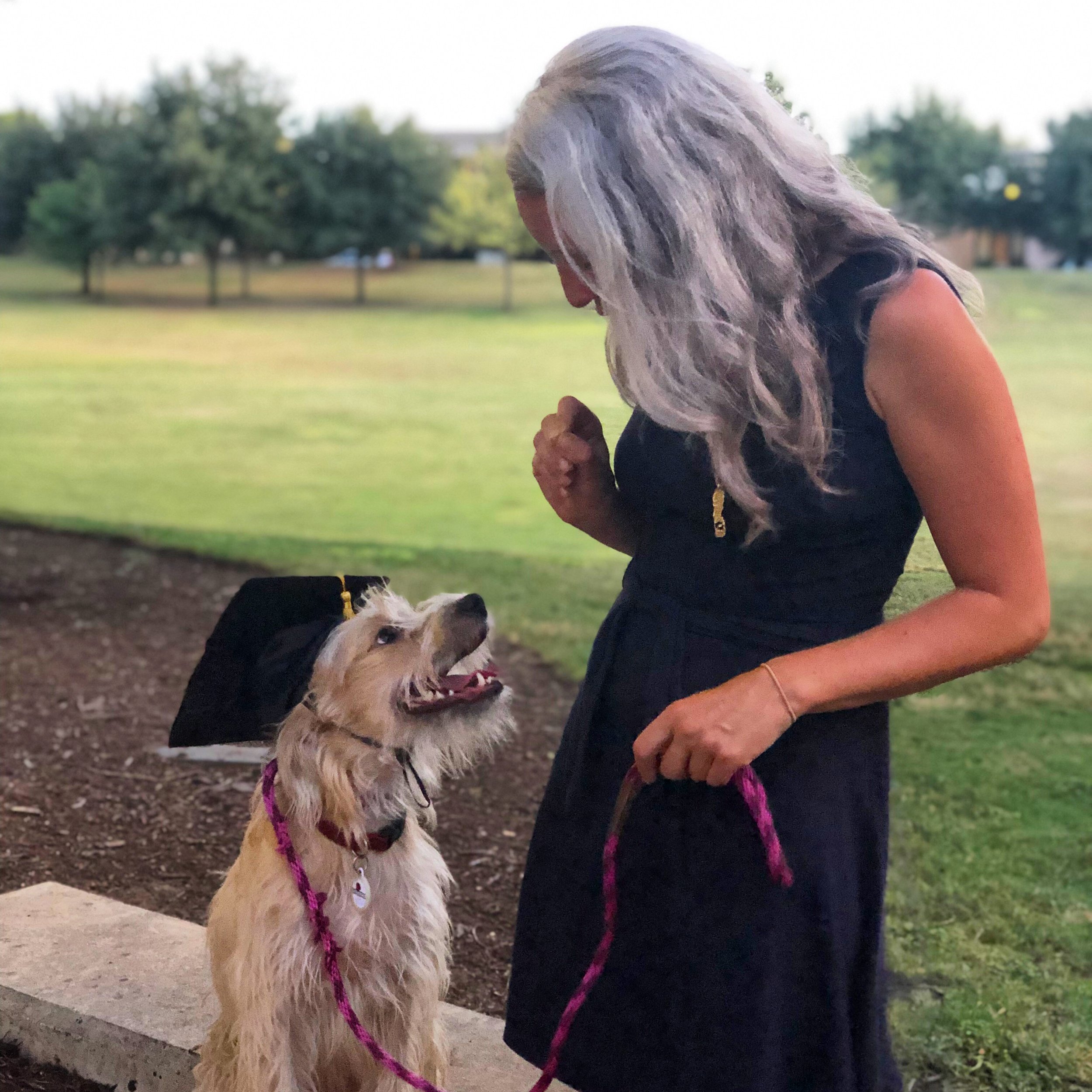ABOUT YOUR TRAINER
Hi, I’m Allegra
I had studied dog training before I got Harley, my 11 year old Dachshund. When I got her, I wasn’t in a good place in my life and Harley gave me a safe focus outside of myself. My life was dedicated to caring for her and I put all my love and attention on her.
“This is how many of us approach our relationship with our dogs - we get dogs to love and because they will love us. ”
Unfortunately this doesn’t work for every dog. Being the main focus of the human in their life can actually cause dogs stress. Harley had serious separation anxiety since she was a puppy that I managed, but applying the pure positive reinforcement training tools I had learned up to that point didn’t resolve it. I learned the balanced training approach I now teach after Harley was bitten by a dog and developed serious dog reactivity over the course of the next six months.
Like many of our clients, it was only when the problem had reached an unmanageable level that I took action. I was lucky to have competent, patient, and skilled help in the trainers I was working for at the time. They gave me books to read and coached me on changes I could make at home to help Harley see me as a leader, feel more secure, and understand that she didn’t need to be reactive with other dogs because I was there to take care of her. More love, more understanding, more coddling, and more excuses didn’t help her. This did.
What resonates with me most about this kind of training is that it’s grounded in using dog psychology and body language as a guide for how we interact with dogs.
Instead of teaching our dogs our culture and language, we use theirs. This approach mirrors what I learned practicing natural horsemanship. Using the same body language that horses use with each other, I can naturally and instantaneously elicit the response from a horse that I want whether I know them or not. By asking my horse to behave the same way towards me that he would to a horse who is above him in the herd hierarchy, I earn his respect and trust. Natural horsemanship was the missing piece in my life as an equestrian - it honored the unspoken bond I felt with my horse, but couldn't put words to.
After over a decade of working with dogs I am grateful to get to share everything the dogs have taught me with owners who want to understand their dogs in order to give them the best possible life.Often dog owners write off certain behaviors by saying “that’s just him being a dog,” but we think highly enough of dogs to know that they can learn, grow, and transform with the skillful application of our training philosophy.
Training can’t change who your dog is, but on the scale of each personality, we want your dog to be the best him that he can be!
That is where we come in.
In this series I share what I have learned over the past 12 years of working with dogs. This approach to training, while counter intuitive at times, is grounded in an understanding of dog psychology, behavior, and body language. Essentially, we teach you to communicate with your dog in the language dogs use with each other. Being more intentional in our interactions, creating healthy boundaries, and offering our dogs more leadership creates a dog who is calm, balanced, attentive, and, most importantly, feels a deep sense of safety with you, which is the most loving thing that we can offer another being.
“If I want to be able to influence and control my dog in high intensity situations, I need to lay the groundwork of the relationship I want in the low intensity moments of the interactions we have in our day to day lives.”











